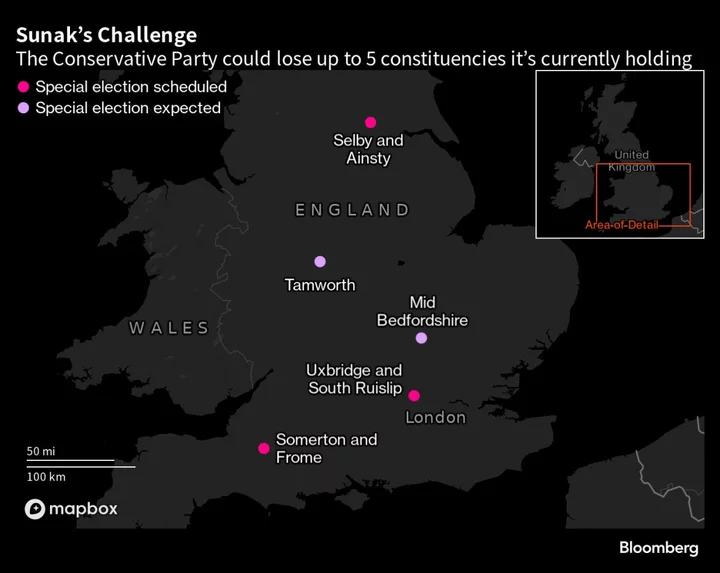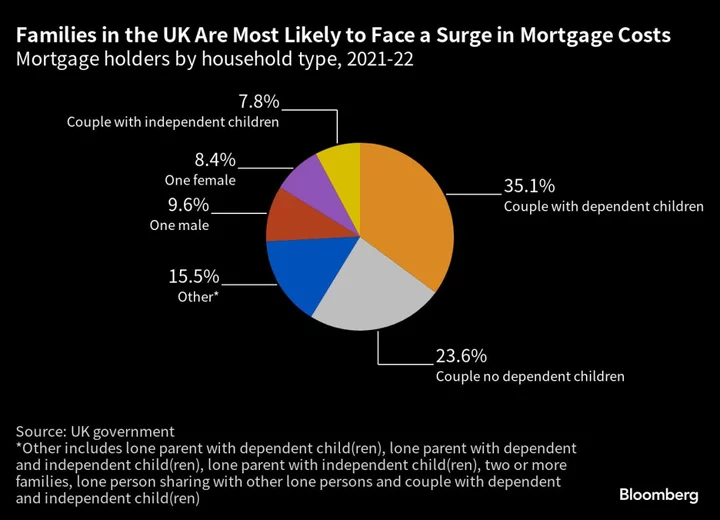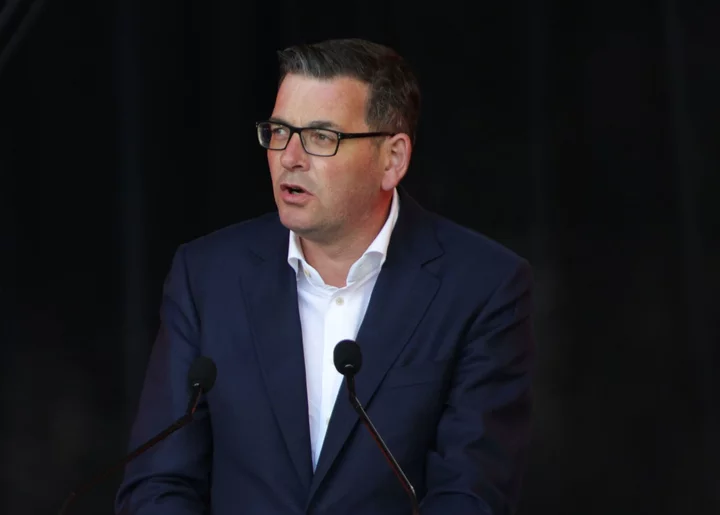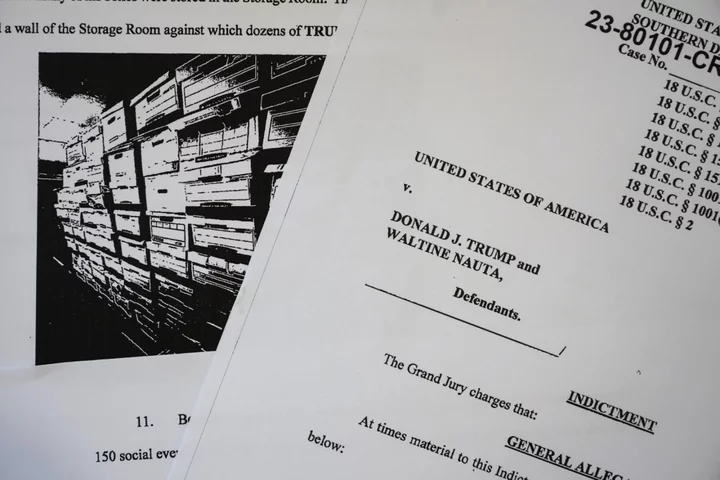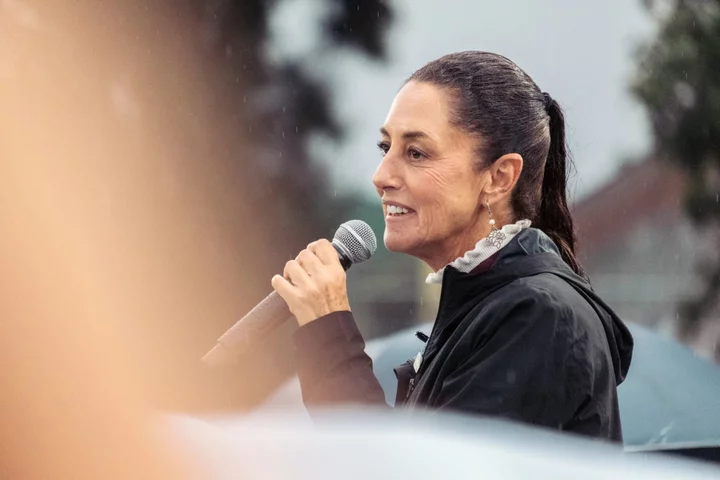As he quit Parliament last month, Boris Johnson lashed out at what he called a “protracted political assassination.” But it is his beleaguered successor, Prime Minister Rishi Sunak, who was left with most at stake as the political fallout from his predecessor’s resignation plays out on Thursday.
Johnson’s shadow hangs over special elections for his former seat of Uxbridge and South Ruislip in northwest London, and in Selby and Ainsty in northern England, where fellow Tory Nigel Adams resigned in solidarity after the former prime minister was found to have lied to Parliament. Polls predict both will flip to the surging opposition Labour Party.
A third vote in Somerton and Frome has similar characteristics to a by-election last year in another southwest England district, which turned to the Liberal Democrats as voters rounded on Johnson’s scandal-ridden governing Tories.
Losing all three would be a major setback for Sunak as he tries to show he can turn around the Conservative Party’s slump in the polls, which began under Johnson and has barely recovered from the turmoil of Liz Truss’s disastrous seven-week premiership. Though few expect another leadership change with a general election due by January 2025, Sunak will find it far more difficult to manage his party if MPs lose hope of winning and resort to faction-fighting.
Further elections are expected in two more Tory-held areas, creating the potential for an unwelcome narrative to persist into the fall for Sunak. The prime minister’s popularity rating sank to its lowest level since he entered 10 Downing Street in October, according to a YouGov poll published Wednesday.
With the Tories trailing Labour by about 20 points in recent national surveys, a shared strategy has emerged among the ruling party’s candidates: avoid mentioning Johnson, or Truss, or even the Conservative central government.
That dynamic is most extraordinary in Uxbridge, a relatively affluent district on the fringes of the capital city, which has voted Tory every time since 1966. Based on interviews on Uxbridge High Street, a repeat is far from a shoo-in.
“I went for Boris in 2019, but not this time,” said pastoral worker Patrick Colbert. “I had to make a heartfelt apology to everyone for that decision.”
At a hustings this month, Tory candidate Steve Tuckwell could barely bring himself to say Johnson’s name — a reluctance that drew jeers from some people in attendance.
Defending a Conservative majority of about 7,000 voters — by far the smallest margin in Thursday’s contests — Tuckwell has tried to turn the election into a referendum on a charging area to cut vehicle pollution known as the Ultra Low Emission Zone. The project was actually started by Johnson when he as London mayor, but its expansion is being pushed by his Labour successor Sadiq Khan.
Tuckwell’s strategy has proved awkward for Labour in Uxbridge, where a campaign focused on the disgraced former prime minister has had to morph since his resignation. Candidate Danny Beales backed away from full-throated support for ULEZ, and has even avoided saying too much about Johnson.
“Boris has always been a bit of a Marmite figure,” Beales said in an interview. “I think people generally want to draw a line under the situation.”
Tory strategists now see Uxbridge as the party’s best chance of retaining a seat on Thursday — a view that’s backed by the limited polling available.
In Somerton and Frome, the Liberal Democrats are expected to overturn a 2019 majority of 19,213 won by David Warburton, who resigned over allegations of misconduct. The district has long swung between the Tories and the Lib Dems, who took Tiverton and Honiton in similar circumstances last year when Neil Parish resigned after being caught watching pornography in Parliament.
For Sunak, a loss in Somerton and Frome would pale into insignificance against losing Selby and Ainsty, a gentrifying district in North Yorkshire close to the prime minister’s own constituency. Unlike in the other contests, there are no complicating factors — excluding Adams’s link to Johnson — and the former MP increased his majority in every election since 2010 when the seat was created.
According to PA analysis, Labour has not achieved the scale of swing needed in a by-election since 1996 — when Tony Blair entered 10 Downing Street. In normal times, Selby would be the definition of a safe Conservative seat.
Yet a recent poll by JL Partners suggests the Conservatives have reason to worry, putting Labour 12 points ahead in the survey of 502 adults last month.
At a hustings last week in Drax Sports and Social Club, near the UK’s largest power station, Tory candidate Claire Holmes tried to steer debate away from national politics to more local issues. She accused Labour of planning to build on green spaces, and promised to ensure local people decide what gets built.
“I’m a miner’s daughter, in a cobalt-blue suit, sitting in a social club — I am the real deal,” said Holmes, whose election leaflets refer to “Rishi Sunak’s government” rather than the Conservative government, as she tries to leverage on the prime minister’s appeal locally. She also tried to avoid discussing Adams, saying it is her “name on the ballot paper.”
The contrast with Labour’s approach could not be more stark. The party’s candidate is Hull-born Keir Mather, who if elected would be the youngest current MP in Parliament. The 25-year-old is a former researcher for Shadow Health Secretary Wes Streeting, and frequently uses some of the party leadership’s favorite catchphrases, including the “Tory mortgage penalty” driven by soaring interest rates.
Starmer himself has visited Selby, attacking Adams’s record and accusing the outgoing MP of throwing “his toys out of the pram” when he was overlooked for a seat in the House of Lords — an honor requested by Johnson.
“At the end of the day, my question to voters is do you feel better off now than you did 13 years ago when the Tories came to power?” Mather asked during the hustings. It’s a line Labour are likely to repeat.
(Corrects to show Adams was overlooked for a seat in the House of Lords, not the House of Commons, in penultimate paragraph.)

